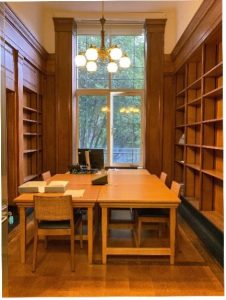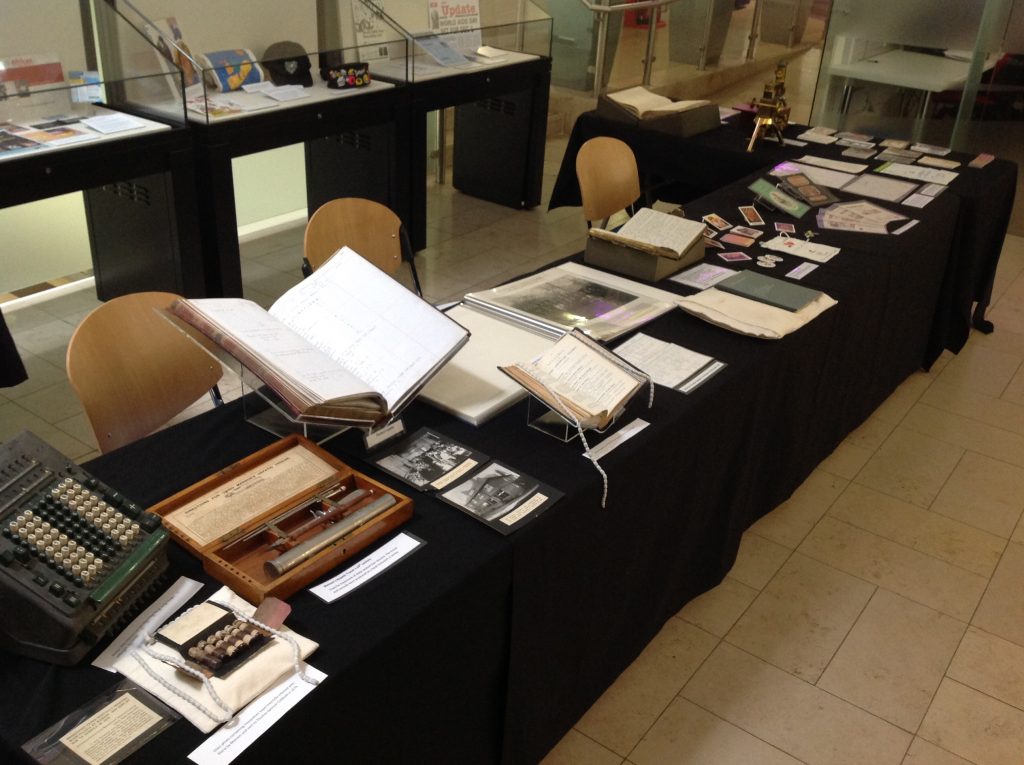I can’t believe that it has been 20 years since I started working at the School! To commemorate this anniversary, this seems a perfect time to reflect on my time at the School, my work as an Archivist and the development of the service. I have been looking through the Archives of the service and remembering many of the projects that I have worked on, this has been a fascinating process and I have created a timeline of events which is a great way to reflect on the development of the service.
In this blog I reflect on my first impressions of the School and compare it with how the service in 2022. More blogs will follow with reflections on the collections, dissemination and events, funding and other projects that I’ve worked on.
I arrived at the School on 2nd July 2002 as an enthusiastic Archivist, ready to establish my first Archives Service and to be the first professional archivist employed by LSHTM. This was not an insignificant challenge as there was little funding (my post was only funding for three years on a sliding scale of full time for the first year, part time for second year and third time for third year), eight of the collections had been catalogued to a high level by AIM25 staff and the Ross collection had been listed to item level but not catalogued to archival standards. The rest of the collections were in crates on the floor. There was no search room, no procedures and limited interest in the archives or the history of the School.
Fast forward 20 years and we are an accredited service with three permanent staff (two part time Archivists and one full time Assistant), with two storage areas, a new beautiful search room and an ever increasing workload!
Over the intervening period, the service has developed in various ways and we have been spread pretty thin at times. We have taken on responsibility for Freedom of Information, aspects of Data Protection, image management and research data management. These services, apart from image management which is a shared responsibility with Comms, have now all moved to other areas which should have freed up our time, however it has been filled up with other activities.
The archives still face some of the same issues that it did when I arrived including lack of funding, we have to raise external funding for the core activity of cataloguing. We have been successful in raising external funding to catalogue five collections: Ross, Maps, Nutrition, HIV/AIDS and Whitehall Study. We have received over £250,000 from the Wellcome Trust’s Research Resources in Medical History fund which now sadly no longer exists. We are extremely grateful to the Wellcome for this funding as it has been invaluable to the service.
The external funding landscape has changed for archives and while we are keep a watching brief of schemes, we have acknowledged that we need to take a different approach to tackling our cataloguing backlog. We are going to trial a workshop approach where we schedule dedicated sessions to sort and appraise collections as a team rather than just one person face the daunting task of reviewing large collections.
There is still a lack of visibility for the Archives Service and we are continually trying to promote the service through dissemination activities, one area which has recently raised our profile internally is our Decolonising the Archives initiative. We have developed five areas where we are changing our practice, these are cataloguing, archival practice, dissemination, education and inclusivity. Through taking a new and innovative approach to these issues, and supporting the work of the School, we have shown the value of our service and of us as professionals who can use our professional skills to support the work of the institution in new ways.
If you’d asked me in 2002 if I would still be at the School in 2022, I would have said ‘no way’, I had no particular ambitions but thought I would end up back in business archives where I had started or working with women’s history collections which was where my interests lay during university. However, I find myself now with a fairly good knowledge of malaria and mosquitoes, HIV and AIDS, and I can do a tour of our Keppel Street building in my sleep. I have been fortunate to work with some amazing colleagues over the years and would like to especially thank our current Assistant Archivist, Claire Frankland, for her hard work and support.
There are still many opportunities and challenges, including decolonising/inclusive practice, tackling the cataloguing backlog, promoting the collections and digital preservation and I am looking forward to working on these activities with the team in the future as well as providing an excellent research service for our users.
Watch out for more reflective blogs over the next month and please contact us at archives@lshtm.ac.uk if you would like any further information


